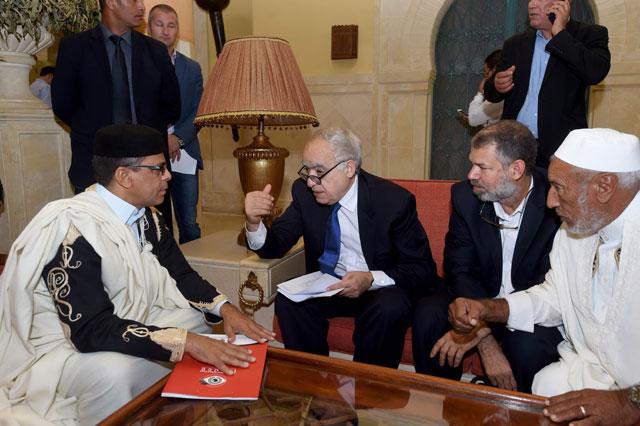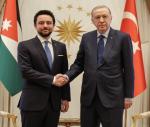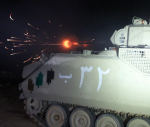You are here
UN, Western powers quietly bury December plan for Libya election
By Reuters - Nov 07,2018 - Last updated at Nov 07,2018
TUNIS/CAIRO — The United Nations and Western powers have given up hope that Libya will hold elections in the immediate future, focusing on reconciliation first among rival factions locked in a cycle of conflict, diplomats and other sources said.
In May, France had persuaded major players in the North African country to verbally agree to elections on December 10 as a way of ending repeated rounds of bloodshed between competing factions that emerged after a 2011 NATO-backed uprising.
But weeks of fighting between rival militias in the capital Tripoli and deadlock between rump parliaments in Tripoli and the east has made that goal unrealistic, Western officials argue.
Shelving the plans for presidential and parliamentary elections is the latest setback for Western powers that helped topple Muammar Qadhafi seven years ago before stepping back and seeing hopes for a democratic transition crumble.
Instead of pushing for a vote as a short-term goal, UN Special Envoy Ghassan Salame will focus in a briefing to the UN Security Council on Thursday on staging a national conference next year and fixing the economy, diplomats said.
The conference would aim to forge consensus in a country divided between hundreds of armed groups controlling mostly minimal territory, towns, tribes and regions.
Salame will also push again for economic reforms to end a system benefitting armed groups that have access to cheap dollars due to their power over banks.
There was no immediate comment from the Tripoli-based government or the eastern-based parliament.
Diplomats say delayed reforms introduced in Tripoli in September, including a fee on purchases of foreign currency, can only partially ease Libya's economic woes as long as the central bank remains divided and predatory factions retain their positions.
The reforms have so far done little to improve conditions for ordinary Libyans hit by steep inflation and a cash crisis linked to the fall of the dinar on the black market.
For the militias, the sources said Salame would outline a new "security arrangement" for Tripoli aimed at depriving them of control of key sites and integrating their members into regular forces — something that has proved elusive in the past.
Khalifa Haftar's Libyan National Army says it is committed to the election process, in which Haftar himself is a possible candidate.
UN efforts to stabilise Libya have long been undercut by the divergent agendas of foreign powers.
The international community formally backs the transitional government in Tripoli, but Egypt and the United Arab Emirates have lent Haftar support and European states including France courted the commander as his power grew.
France led the push for elections, believing it could benefit from helping fix the Libya conflict, before realising the country was not ready for a vote, diplomats say.
France has vied for influence with Italy, which has sought to protect its oil and gas interests and stem the flow of migrants crossing the Mediterranean by building ties in Tripoli, where it is the only Western country to fully reopen an embassy.
Italy is hosting a conference in Palermo next week, where Salame's roadmap will be discussed.
In recent weeks, Western powers and the United Nations have quietly stopped talking about the election in December, without formally declaring it dead.
"The idea is now that Salame will talk about a national conference and economic reforms so people hope the December 10 date will quietly pass away," said one source familiar with UN plans.
Elections remain the goal, but progress on the ground towards better governance and security were needed in place of "extended additional thinking sessions", said a senior US administration official.
Related Articles
TRIPOLI — The United Nations will hold a long-awaited conference inside Libya in April to discuss a way out of the country’s eight
TUNIS — The United Nations began a new push on Tuesday to stabilise Libya by getting rival factions to revise the stalled peace plan and set
TRIPOLI — France's Foreign Minister Jean Yves Le Drian was in Libya on Monday to meet rival political leaders and offer support for a deal a















